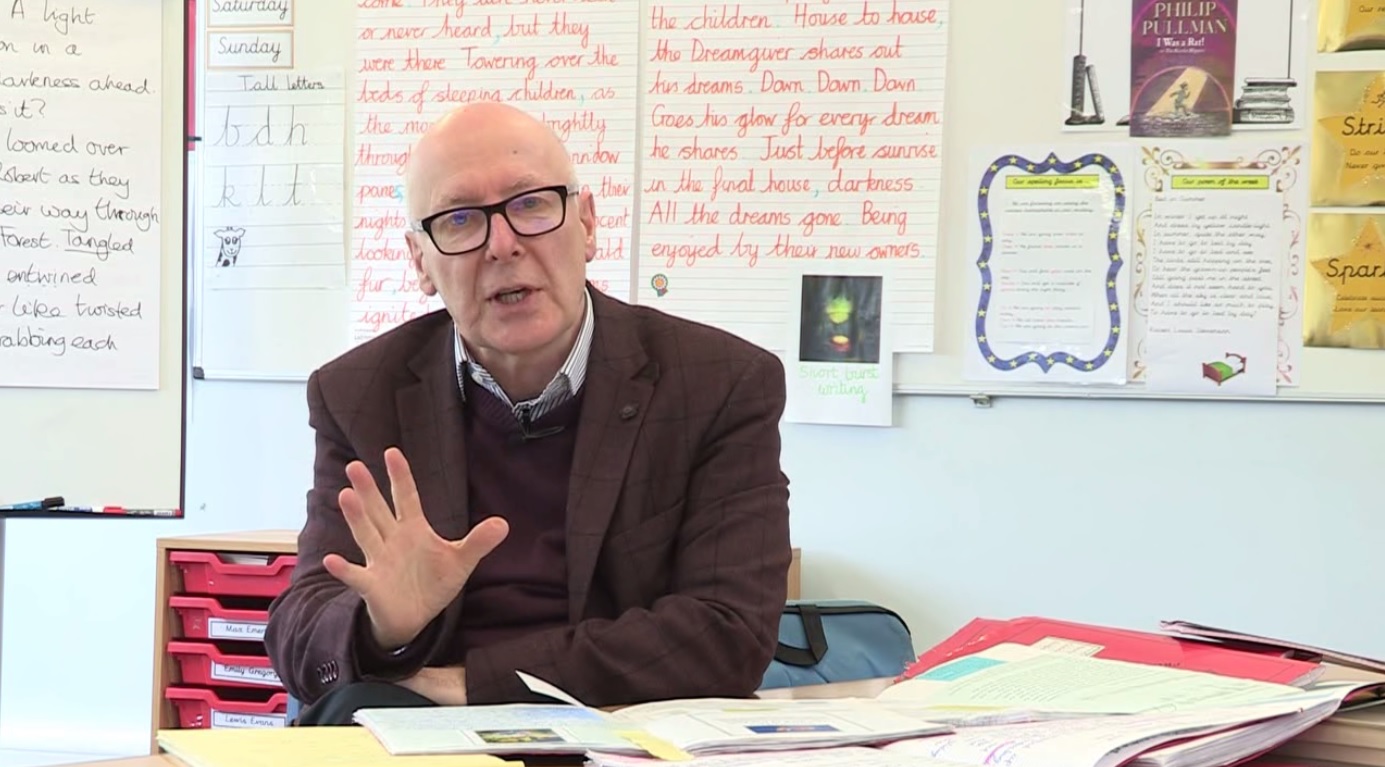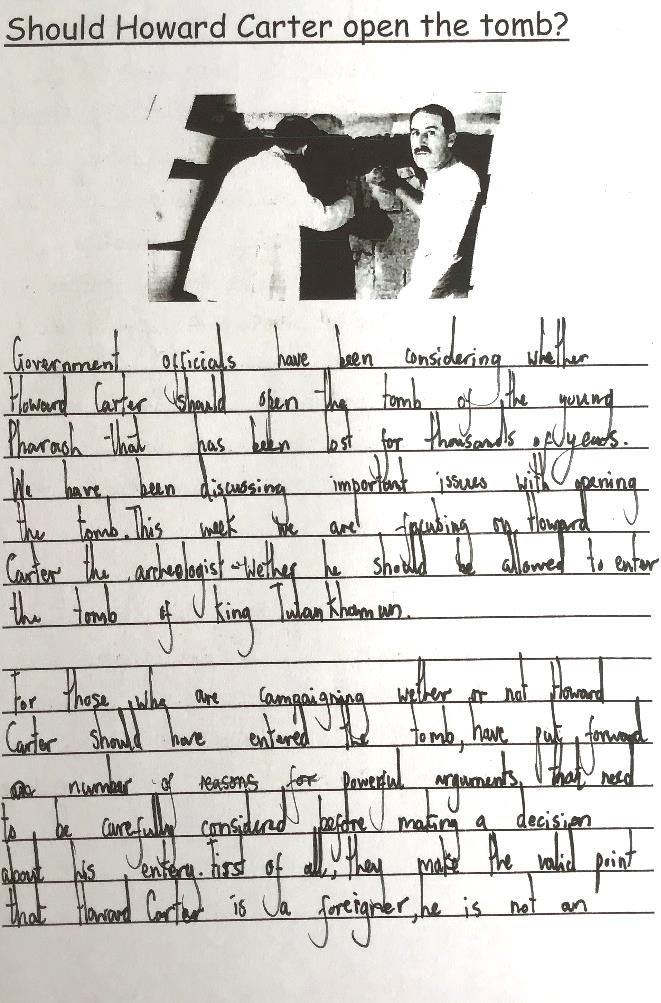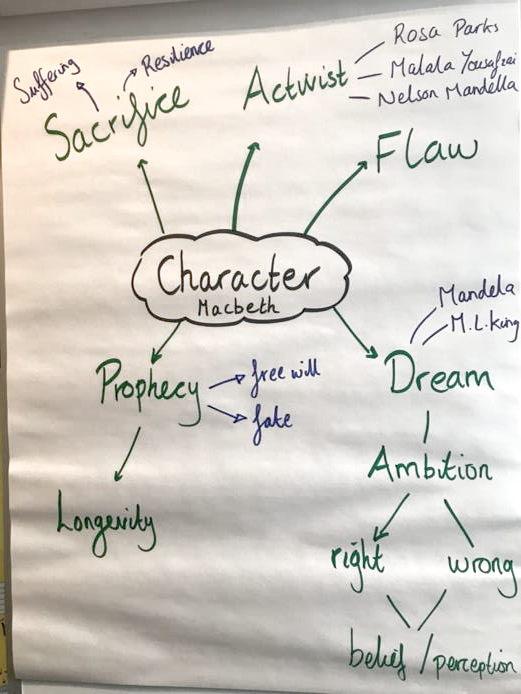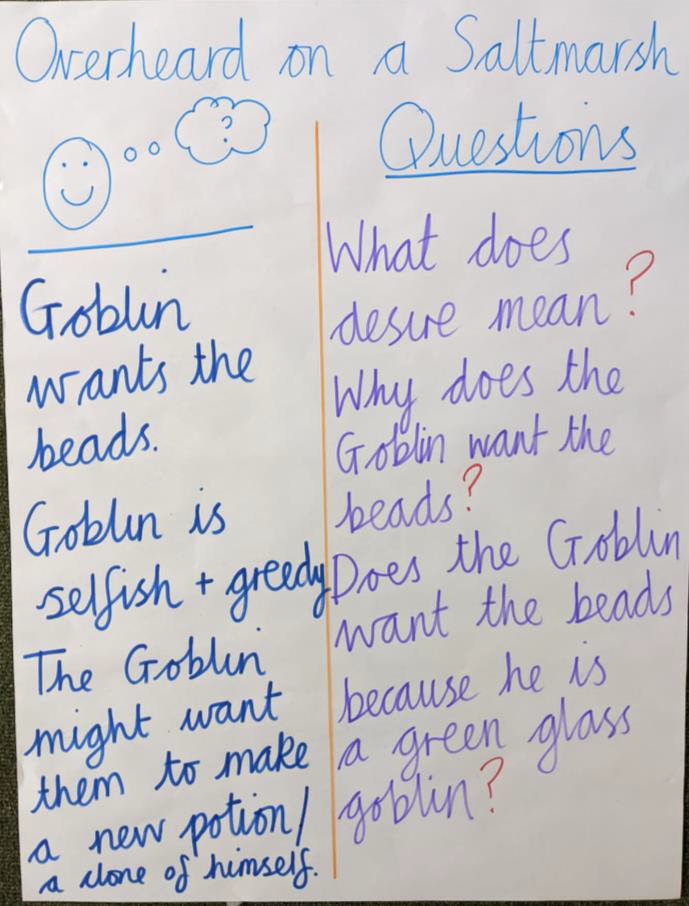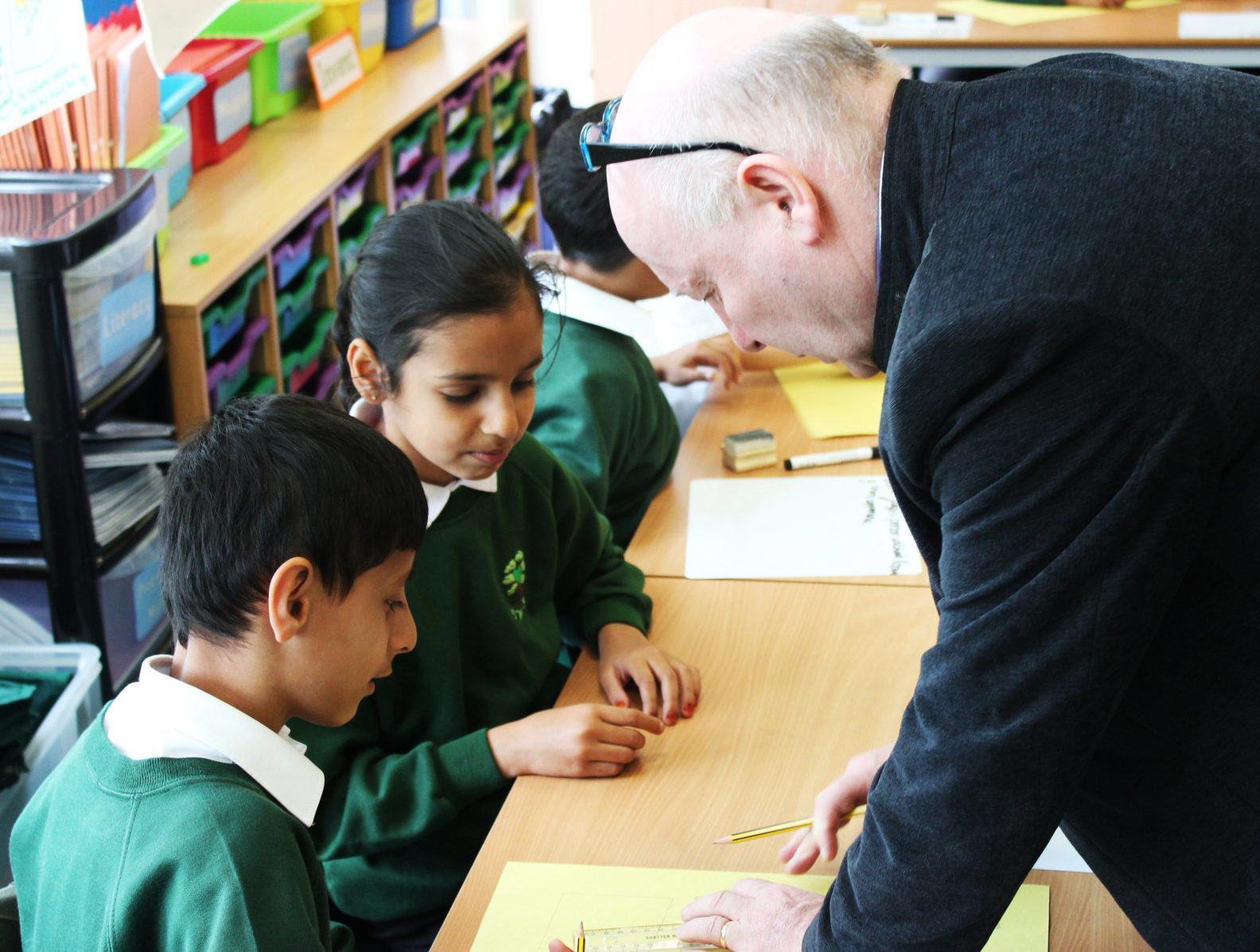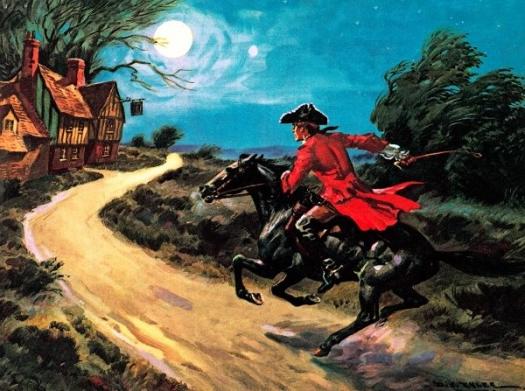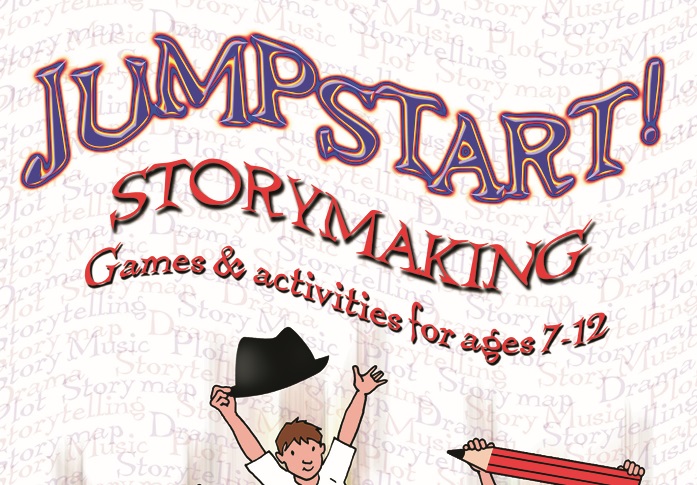In this video series, Pie Corbett answers your frequently asked questions. Here, he discusses what is meant by a ‘hook’, when and how to use one, and why it is important to the Talk for Writing approach.
Moving from discursive non-fiction writing in English to discursive writing across the curriculum
Upper KS2 teacher Jamie Grossmith shows how his class applied the skills they learnt about discursive writing in English to History, building their skills across a year.
Pie’s Poetry Unit – ‘What are you?’
Pie Corbett demonstrates how you can use a simple version of a repeating poem like What are you? to liberate the imagination of children.
An introduction to the Talk for Reading planning process
Talk for Writing consultant Jamie Thomas talks through the Talk for Reading planning process, discussing the importance of working with high- quality texts and using strategies that enable children to develop deep, meaningful understanding.
Talk for Reading at KS1 – How to plan a unit
Talk for Writing and Reading consultant Jamie Thomas talks through the Talk for Reading planning process at KS1, discussing the importance of working with high-quality texts and using strategies that enable children to develop deep understanding.
Poetry as truth-telling from memories
Lesson idea from Pie Corbett to generate poetry from memories of real experiences.
The Highwayman – model text, teaching notes and worked examples
Talk for Writing consultant Jamie Thomas explains how a model text can be used to help pupils explore character through levels of formality and perspective. Below is the model text, teaching notes and worked examples.
Clock Close
TfW Trainer Dean Thompson has put together a brand new model text – a portal story which links to both history and geography. “There were no clocks in Clock Close…”
Jumpstart Storymaking by Pie Corbett
Jumpstart Storymaking is a collection of ideas to develop the creative process of ‘storymaking’. Over 100 thought-provoking games and activities, intended to ‘jumpstart’ storytelling, reading and writing in Key Stage 1, 2 or 3 classrooms. Practical, easy and entertaining, the ‘jumpstarts’ will appeal to busy teachers.




